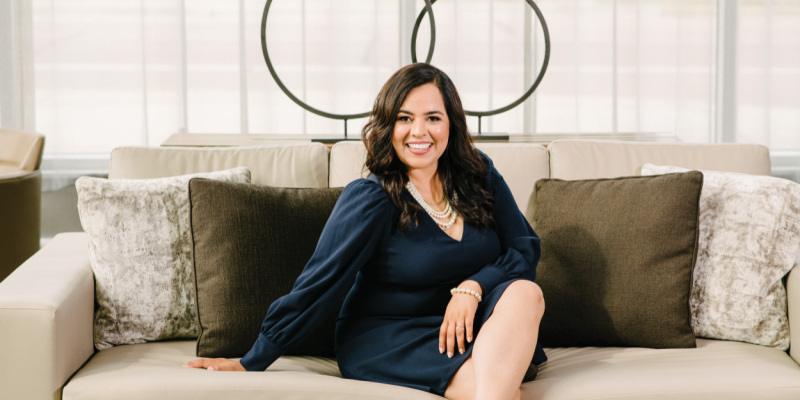By Emily McCluhan
When Margarita Avila was 14 years old, her parents moved her from Mexico to Madison to live with her older brother while they stayed behind to run their family-owned grocery store. Her parents wanted Avila to learn English and obtain a better education. Although their life in Mexico was stable, they believed the opportunities for their daughter in the U.S. were more abundant than what was in their Mexican community.
Navigating a new language, education and health care systems, and figuring out basics like opening a bank account, built a foundation of resiliency in Avila. But it’s the mentors along the way who helped her build self-confidence and access resources while attending James Madison Memorial High School, which put her on the path to Wisconsin Lutheran College. Currently, she’s the director of workforce development at Madison’s Latino Academy for Workforce Development. The academy provides bilingual, adult education programming, skills training and workforce development support and trainings.
As a first-generation immigrant, Avila says the networking opportunities and doors her mentors opened for her were crucial to her success through high school and college. Now, she’s using her connections as she guides students at the academy.
“Because I am a minority, I can relate with the situations that our students face in finding a job, because they don’t have that established professional community. They don’t have family [members] that know someone to make those connections.”
In Avila’s experience, a mentor relationship is often organic, especially when you meet someone who has traveled a similar path as you. Avila found this type of mentor early in her college days when she met Azure’De Williams, a fellow woman of color who helped Avila build her confidence while quickly becoming her mentor and friend. The two worked together at an after- school program through Wisconsin Lutheran College that helped connect underserved youth with secondary education options.
“If a mentor is a friend, they need to be direct while providing constructive feedback,” she points out. “And if things don’t go as planned, they need to help you analyze why and how to do things differently next time.”
Avila says Williams, who is now the executive director of the Milwaukee Area Health Education Center, was great at this and also helped her discover her passion: working with nonprofit organizations. Williams also sent her a job opportunity after graduation at the American Heart Association in Milwaukee as the multicultural initiatives coordinator and later she supported her in being promoted to director of multicultural initiatives. Although Avila thought she wasn’t qualified, Williams helped her craft her resume to see that she did have the skills for the position, and she was hired.
“It’s so hard to step out of our comfort zone, but a good mentor can help you see the potential that you might not see,” she says. “And that’s when you can grow, learn and have new experiences.”
Joining professional organizations like Prospanica, a group for Hispanic business leaders, and the Urban League Young Professionals group have also helped Avila network with potential mentors and hone her own mentoring skills. She says the investment in these groups pays off in the long run through job opportunities and building her confidence to dream bigger. It’s also created a support system of mentors and friends.
That support system is what gives Avila the motivation to mentor other minority and immigrant students: “I want to make sure that I return what I’ve learned back to my community.”
How have you been able to achieve a work-life balance that works for you?
“I really believe that what you put in your body matters, so eating healthy is important to me. It’s a struggle, [but] if you’re healthy and you stay active, you’re going to have more energy and [get more done every] day. Another important practice that I started during the pandemic was meditation. I wish I would have learned more about meditation sooner!
It’s helped me to be more present because we have so many things going on. It helps me focus and center on the moment.”
– Margarita Avila



